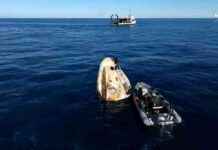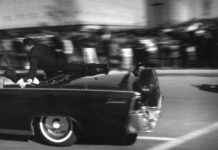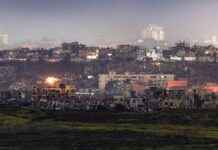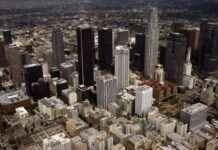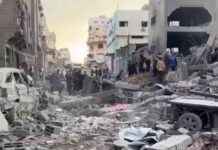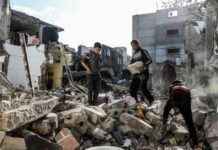A motorist loaded with explosives has caused at least nine deaths and sixteen injuries – eight of them very seriously – this morning in Pakistan. The target of the suicide attack was a police van that had left the town of Sibi bound for Quetta, the provincial capital.
The kamikaze crashed into the vehicle from behind, triggering the explosion, according to a local police officer. The massacre occurred next to a bridge in Dhadar, in the Kachchi district, 120 kilometers from Quetta.
In the case of an area with a Baluchi majority – unlike the northwest and the provincial capital itself, where the Pashtuns dominate – the Balochistan Liberation Army or one of the other secessionist organizations of the largest province of Pakistan could be hiding behind the attack.
Until recently, Islamabad accused the previous Kabul government of supporting these armed organizations, hand in hand with the Indian consulates in Afghanistan, currently closed. Kabul and New Delhi, for their part, criticized Pakistani support for the Taliban and Kashmiri insurgencies.
It should be said that the Balochistan Liberation Army has never denied its willingness to accept funding from anyone, similar to the Pakistan Taliban Movement (TTP). Lately, he has been a leading player in the terrorist campaign against Chinese interests in Pakistan, particularly in Karachi and on the “new silk road” that is to link Xinjian with the Baluchi port of Gwadar.
All the dead are agents of the Balochistan Constabulary, a militarized police force. According to the Kachhi district police chief, the attacked unit was returning from a neighboring district, after having protected the celebration of the Sibi agricultural fair for a week. As a result of the explosion, the open truck that was transporting them flipped 180 degrees and the first images show several men crushed under the weight of the vehicle itself.
In Balochistan, a province as abandoned as it is rich in gas and mineral deposits, an important part of the native population – Iranian-speaking – believes that its resources are exploited by the Punjabi majority that dominates the Pakistani state. The conflict, which has dragged on for decades but was revived shortly after the last invasion of Afghanistan, has left hundreds of people missing at the hands of the security forces.
There is no flag of Pakistan that can fly in the territory without an armed checkpoint to protect it. To the average Pakistani from Lahore or Rawalpindi, Quetta is as exotic a place as Kabul, if more threatening.
This Monday’s carnage comes after a week that saw three attacks in Balochistan, in which two policemen and four miners died. The latter, due to the bursts of bullets that a terrorist command fired at a mine in the Khost district, which injured three other workers.
The conflict with the Baluchis secessionists is joined by the challenge of the Pakistani Taliban Movement (TTP) -Pashtun-based, but with no organic relationship with the Afghan Taliban- which has increased its campaign against the Pakistani security forces in recent months.
The attack in Baluchistan increases political tension in Pakistan, on the same day that former Prime Minister Imran Khan could be arrested. Militants and supporters of his party have conspired to protect him outside his home in Lahore.
Meanwhile, Jan has been banned from television after calling for “the real war for justice.” Jan, ousted a year ago in a vote of no confidence in which a lot of money changed hands, is the big favorite for the elections scheduled for this year, but he could be disqualified on the pretext of having sold gifts from foreign governments in conditions that are not allowed by the law.



